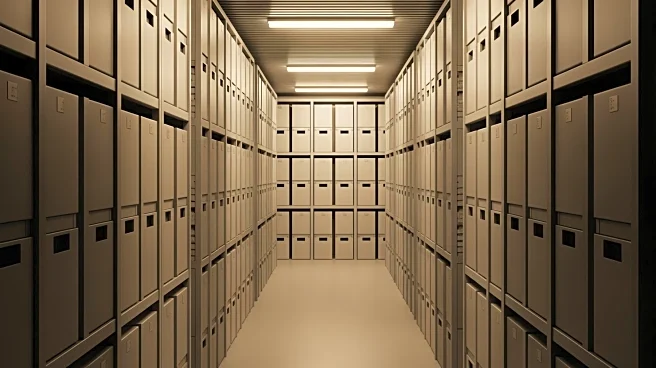What's Happening?
A recent survey conducted by YouGov highlights the prevalence of self-storage usage among Americans, with approximately one-third of the population having rented a self-storage unit at some point. The survey indicates that 10% of Americans currently use
self-storage facilities. The data reveals that self-storage is utilized by a diverse demographic, including similar proportions of men and women, young adults under 30 and seniors over 65, as well as individuals across various income levels and educational backgrounds. A significant factor influencing self-storage usage is the level of clutter in homes. The survey found that 23% of individuals living in highly cluttered households rent self-storage units, compared to only 8% of those in less cluttered homes and 7% in homes that are not cluttered at all.
Why It's Important?
The findings from the YouGov survey underscore the growing reliance on self-storage facilities in the United States, reflecting broader societal trends related to consumerism and space management. As homes become more cluttered, the demand for additional storage solutions increases, driving the expansion of the self-storage industry. This trend has implications for urban planning and real estate, as the need for storage space influences the development of commercial properties. Additionally, the survey suggests that self-storage businesses have a generally neutral or positive impact on communities, with only a small percentage of Americans perceiving them negatively. This perception may encourage further investment in the sector, potentially benefiting local economies through job creation and increased property values.
What's Next?
The continued growth of the self-storage industry may lead to increased competition among providers, prompting innovations in service offerings and pricing strategies. As more Americans seek solutions for managing household clutter, self-storage companies might explore partnerships with decluttering services or offer integrated solutions to attract customers. Additionally, urban planners and policymakers may need to consider the implications of expanding self-storage facilities, including zoning regulations and community impact assessments. The industry could also see advancements in technology, such as smart storage solutions, to enhance customer experience and operational efficiency.
Beyond the Headlines
The reliance on self-storage units reflects deeper cultural and economic shifts, including the accumulation of consumer goods and changing living arrangements. As people move more frequently or downsize their living spaces, the need for external storage solutions becomes more pronounced. This trend raises questions about sustainable consumption practices and the environmental impact of producing and storing excess goods. Furthermore, the growth of the self-storage industry may influence societal attitudes towards ownership and space utilization, potentially encouraging more minimalist lifestyles or innovative housing designs that prioritize efficient use of space.















